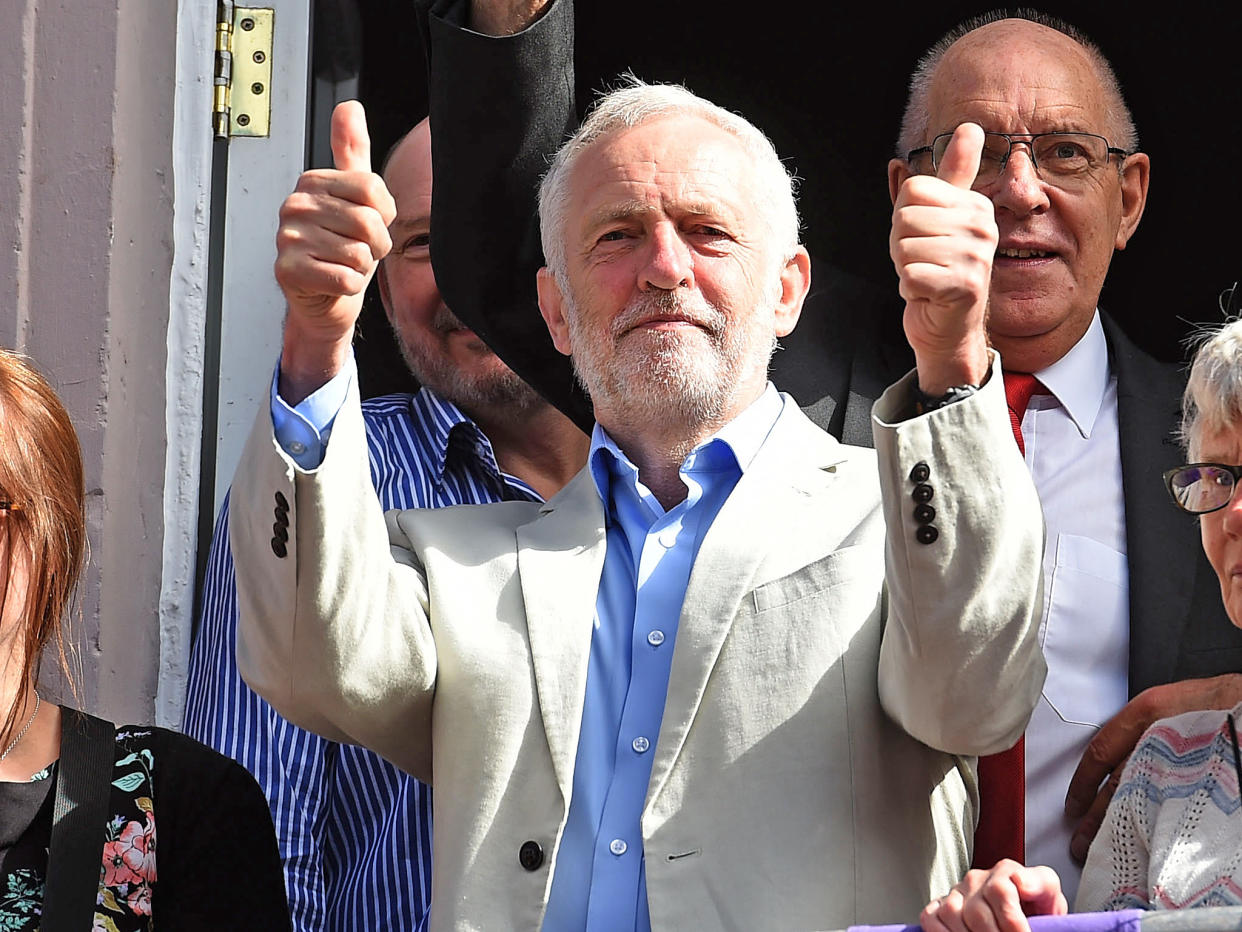The Conservatives are totally screwed and a weak attack on Corbyn’s strengths isn’t going to change that

It’s not even been two months since mainstream political commentators were found to be desperately out of touch with the British public, but already they are at it again, hyping up false controversies that virtually nobody cares about outside of the Westminster bubble.
The faux outrage generated by the Conservatives, based on their outright lie that Jeremy Corbyn promised to write off historic student debt during the general election campaign, has been carried by some media outlets like the Mail Online, exacerbated by their desperation to find something to write about while Parliament is in recess.
While the press have been happy to regurgitate these attack lines unchallenged, they are yet to make the point that the decision by the Conservatives to focus on student debt is not based on Theresa May, or any other Conservative, actually caring about the debt burden on graduates. Rather, it is a concerted effort to now attempt to undermine Jeremy Corbyn’s strengths rather than his weaknesses.
During the general election campaign, the Conservatives relentlessly attacked Corbyn for what they perceived were his failings: on his history, on defence, and on security. But the problem with focussing on an opponent’s weaknesses is that they tend to be priced in by the electorate already, particularly when, as was the case with Jeremy Corbyn, they have been attacked relentlessly on those very issues for a substantial period of time.
By falsely claiming that Corbyn lied, the strength the Conservatives are attempting to undermine is his honesty. It is indicative of just how far Corbyn has come that the Conservatives see his personal character traits as a threat, building their entire attack strategy around attempting to convince young people that he is “just like any other politician”, in the hope that this will suppress voter turnout at the next election.
But if their plan is to create disillusionment using the press it will fail, and for a number of reasons. Firstly, young people are less likely to read the Daily Mail, which has been carrying these attacks, but those that do read it are more likely to see through what is blatant propaganda, having done their own research. Some may have even simply googled the NME interview where Corbyn didn’t commit to writing off all student debt.
Secondly, Conservative policy – to not even abolish tuition fees let alone look at ways of ameliorating historic student debt – is much worse than Labour’s. If the attacks carry on all summer, all Labour would have to do when Parliament resumes is call an Opposition Day debate on abolishing tuition fees, forcing a vote. The Conservatives would look absolutely ridiculous voting against the motion, having virtue signalled for weeks by claiming Corbyn is “letting down young people”.
Instead of making young people feel disillusioned, all that will happen is the demographic the Conservatives are targeting will end up trusting them even less. YouGov found that demographic to be just 17 per cent of 18-24 year olds – as only that proportion thought Corbyn had committed to writing off all student debt before the election. Some of whom wouldn’t even have voted Labour anyway.
In this new era, where social media acts as a fact-checker, where the electorate are more engaged in politics and are more inclined to do their own research, particularly near election time, and the delivery of political messages can bypass mainstream media channels, it is authenticity and coherence that are the most important attributes for politicians. When people are “just about managing”, it is a positive, transformative vision that appeals. Baseless, negative attacks are no substitute for that.
The Scottish Conservative leader Ruth Davidson recognises this, having recently argued that capitalism needs a “re-boot” and that her party must boldly make the case for Conservatism. Davidson’s prescription is based on the correct analysis that the system is no longer working for most people. This is best illustrated by the rapid decline in owner-occupancy in the last twenty years. In 1997, around 60 per cent of 30-somethings owned a property, and in 2017 that figure has dropped to just 20 per cent.
The problem for Davidson’s party is that there are limits to what the Conservatives can do to reform capitalism, given that they are funded by the very corporate and vested interests that want to maintain the status quo, or the “rigged system” as Corbyn describes it. Being in government is not the ideal place for soul searching, but if the Conservatives want to have any chance of challenging Labour at the next election, they need to work out what they stand for if it isn’t austerity, and quickly. But given they can’t even decide between them whether they think chlorinated chicken is acceptable, I don’t think we’ll see that any time soon.

 Yahoo News
Yahoo News 
